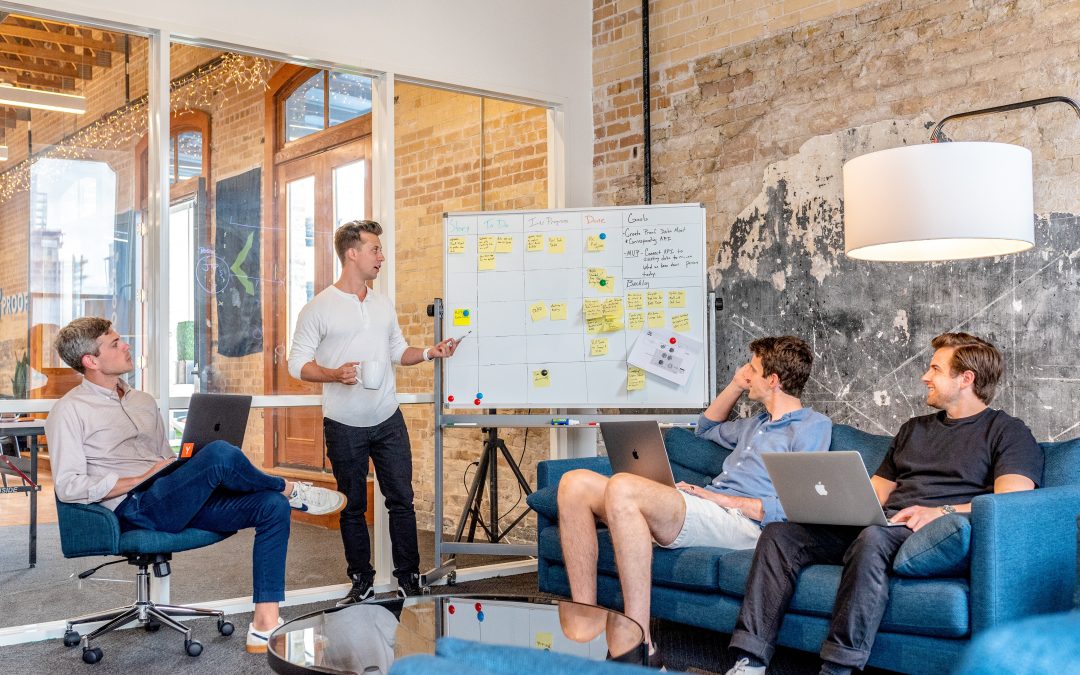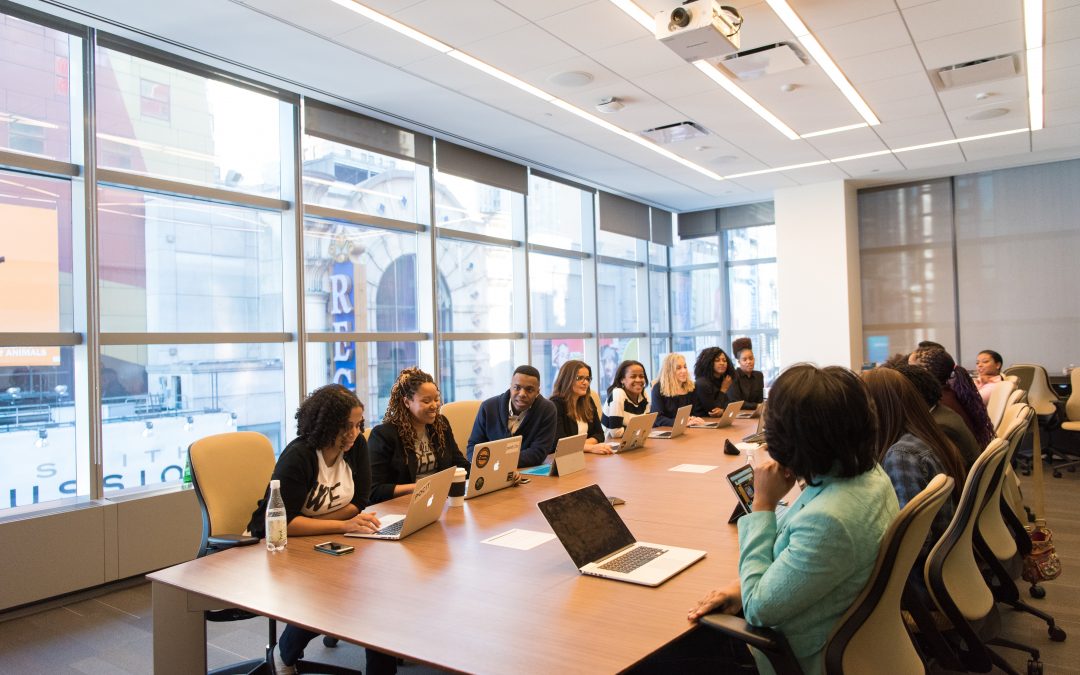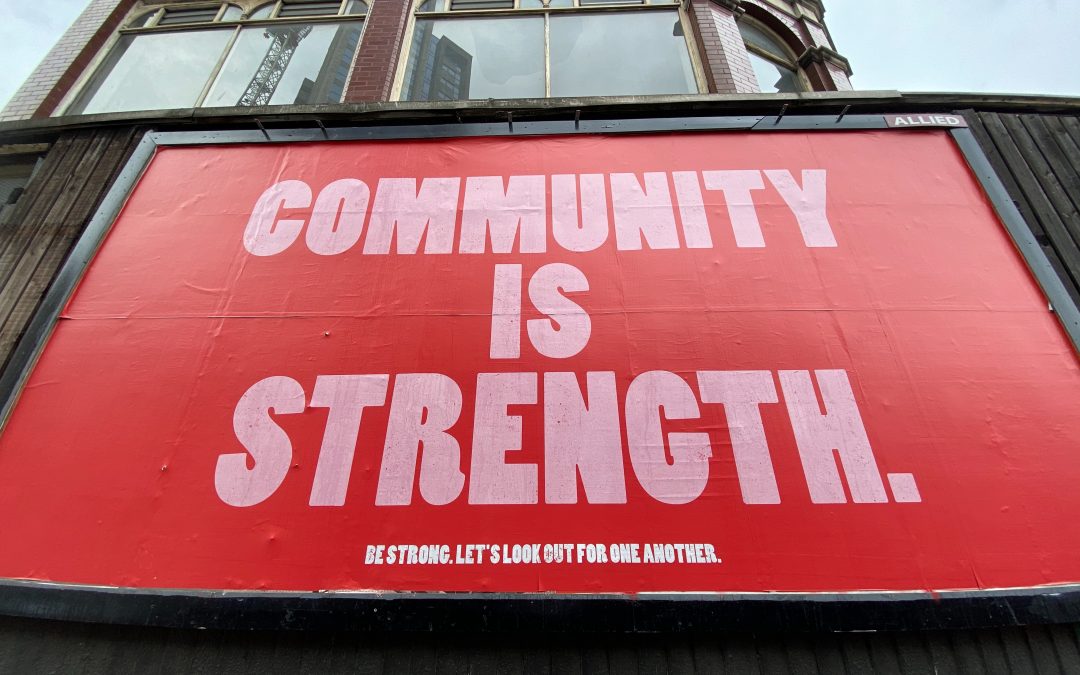
Long day, pre-GUADEC rumble
Everyone loves [Michael Meeks](https://www.gnome.org/~michael/) and and his inimitable blogging technique. I figured I would use his style to describe the utter beast of a day I have just had. Times added to make it feel like a knocked-off episode of [24](https://www.fox.com/24/):
**12.15am** – went to bed, pulled mail.
**1.00am** – went to sleep watching [Desperate Housewives](https://abc.go.com/primetime/desperate/). My masculinity feels challenged by my uncontrolled liking of it. I expect a shoeing at [GUADEC](https://guadec.org/) about this.
**5.45am** – woke up. Felt like shit.
**6.15am** – drove to train station to meet with the Revellator.
**6.40am** – got on the train to Reading. Meet up with the other two LUGRadio goons.
**9.00am** – transported to Microsoft Campus to take part in an Open Source consultation session. The day involved lots of discussion about our opinions and perception of Microsoft, and the chance to ask them lots of questions. They received a particularly prominent hammering on CALs and interoperability. Nick McGrath was, as ever, a personable and pleasant guy to hook up with.
**2.30pm** – left Microsoft for the train station, got on the train and stood all the way back to Wolverhampton. Legs ached, grumbled.
**5.00pm** – arrived in Wolves, left the train station to pick up Steve from [Seraphidian](https://www.seraphidian.com/) for the gig tonight. Went to my house, picked up gear, off to his house to pick up gear, and then off to the venue.
**6.00pm** – sound-checked.
**10.45pm** – went on stage, headbanged for 45 minutes.
**12.00am** – left the venue, dropped Steve off, went home, cuddled the two puppy dogs, pulled mail.
Busy day, as you can see.
## GUADEC
The preperation for GUADEC is mostly complete. My talk is pretty much done, and my liver has been battle hardened to take the battering it so rightly deserves. Rest assured people, there [will be pictures](https://jonobacon.com/gallery/main.php?g2_view=core.ShowItem&g2_itemId=1497&g2_GALLERYSID=f4a5ac2c21585283477c9801d705beb1). Oh yes, there will be pictures. It was also nice to see the [Jokosher](https://www.jokosher.org/) team [hacking on some extra stuff](https://jokosher.python-hosting.com/timeline) today – this will all make the talk that little bit more scintillating. I am also pleased to see the seedlings of a Jokosher Doc Team springing up. The magic link is [this](https://guadec.org/node/185). Read it, memorise it, and obey it. 🙂
I am really looking forward to heading out to GUADEC, and it will be great to meet old and new friends again. There is a pretty phenomenal range of talks available, and its going to be tough deciding between many of them. Last year was my first GUADEC, and not only was it interesting technically, but it was great socially. A great combination of interesting people who like to have a good time. Rock on.
It should also be mentioned that [LUGRadio](https://www.lugradio.org/) are media partners and we will be there recording and releasing shows on each day. I went out the other day to buy a snazzy little mixing desk I can stick in my laptop bag to do the show, and all the gear is set and ready to go. No-one is safe from our monstrous mics of power, and all of you GNOME developers will be hung, drawn and interviewed without argument. Beware.

Ask the audience: Pushing Creative Commons stuff
As some of you may know, I run [Recreant View](https://www.recreantview.org/blog/) which is where I put all of my [Creative Commons](https://creativecommons.org/) licensed music. On the site I write about and release music which can be freely distributed, and allows people to make derivative works and mashups/remixes. In fact, I just released a brand new tune – [Enslaved By Pain](https://www.recreantview.org/blog/?page_id=54). Check it out, I am quite pleased with it – an angry, heavy tune which also combines some acoustic guitar and singing.
Anyway, the point of this blog entry is to ask the [same question I asked on the LUGRadio Forums](https://forums.lugradio.org/viewtopic.php?t=2228) – how do I push (a) [my own effort](https://www.recreantview.org/) in producing Creative Commons content and (b) the Creative Commons ethos in general. I am really keen to see how people can use the rights associated with the Creative Commons to do interesting things with my music. I can imagine these possibilities:
* Creating remixes, mashups and other derivative works for different styles of music. A rave version of Enslaved By Pain? Nice. This has [already been done](https://www.recreantview.org/blog/?p=50) by one guy.
* Transcribing the music into tablature. A chap emailed me this week asking if he could include the tab to my [Free Software Song](https://www.recreantview.org/blog/?page_id=15) in a package of a Linux based tab editor. I would love to hear from people who enjoy transcribing songs into tab to transcribe some of the songs so others can play them. This is no different to documentation to Open Source projects. When I was younger I used to transcribe tab and put it online – alas none of it seems to have been archived anywhere.
* Creating album covers for the songs – each song probably instills a particular vision in the listener. It would be interesting to see some art for each tune.
So, how do I promote this kind of stuff? Where do I tell people about it? Which sites do I contact? This is all quite new to me – impart your wisdom people. 🙂
Oh, and I watched my [telly appearance](https://jonobacon.com/viewcomments.php?id=707) last night and it seemed to go OK. I was pretty damn nervous, but I felt it came across OK. Also, an [interview with me](https://searchopensource.techtarget.com/originalContent/0,289142,sid39_gci1193383,00.html) has been published on SearchOpenSource.

Everyone leave the house at 7.30pm tonight
As far as I am aware, my interview on the G@mers TV show on [Rapture TV](https://www.rapturetv.com/) should be aired tonight. I have not seen it yet, and I have no idea how it came out. Hopefully I won’t look a complete monkeys arse on there.
The show is broadcast at 7.30pm GMT on Sky channel 193. You can also view it online by [clicking here](https://www.rapturetv.com/live.html).
Eek.

Say NO to Robert Love
Sure, you may have heard me proclaim great things about [Robert Love](https://rlove.org/) in the past, and yes, he did make the whole Project Utopia thing happen. And, someone of a positive orientation may claim achievements to do with kernel hacking and wireless integration into the desktop. Remove all of these thoughts from your head though, Robert Love is an evil man.
Why? Well, he just so happens to be speaking at the same as me at [GUADEC](https://guadec.org) next week. If you going to be there, remember the pest to society that he is and come along to my [Riding by the seat of your pants: The Jokosher story](https://guadec.org/node/185) talk instead – you can also find out about an awesome GNOME/GStreamer/Cairo/Tango miracle of life. What more could you want?
In other news, I have been confirmed as a speaker for the [UKUUG 2006 Technical Conference](https://www.ukuug.org/events/linux2006/). I will be delivering the talk that keeps on rocking, *On the Front Line: Convincing People the Inconvincible*.

Unwrapping Learning Potential With Open Source
Education is a funny old game, and one that seems to mystify even the closest of observers. Populated with policy, procedure, top-down advisory boards and a chain of hierarchical button pushers, education can be a tough cookie to understand. If you then roll into the mix the fantabulous world of IT, you have a sure-fire recipe for confusion that can be difficult to measure and improve. With so much technology, politics and vision kicking around, progress can be slow if not non-existent.
In the Open Source world, education has been pretty close to our hearts. For many, the Open Source ethos and the education ethos are symbiotic – the core foundations and ethics are intrinsically interlinked. Whenever I have been out speaking at education related shows or working with educators, I always like to ask why they do it, and what exactly gives them their kicks in their work. The vast, vast majority of people respond with “well, I want to make a difference”; a not totally unfamiliar viewpoint levelled by a great many Open Source people.
Despite such ambitions, the education world has largely approached IT from a who’s-got-the-most-tickboxes perspective. Computers are typically seen as logical devices that do specific things and run specific applications, and when different options exist, they are largely judged on comparative technical ability – this machine can do that, that machine can do this. This is understandable. Decision makers ultimately need to be able to quantify the things they are making decisions about, and IT lends itself to this with its blow-by-blow feature charts, spec sheets and plastic-haired salesmen.
The problem is that the current educational IT climate only seems to identify with these purely functional benefits of IT, and ignores the potential for community building, collaboration, self-motivation and social skills that IT can bring. Sure, kids need to learn how to use a word processor and a spreadsheet, but wouldn’t it be great if they could learn how to use computers to work together on projects, develop social connections, inspire each other and develop their own opportunities and benefits. It is less about using the computer as a tool to do something, but harnessing it as a platform to make amazing things happen.
### Changing the formula
Part of the problem with current educational philosophy is that students are spoon-fed learning. This was no different when my straggly-haired younger self was at school and university – I showed up to classes, learned some things, did some coursework and sat some exams. This learning rota consisted of a periodic set of instructions that I had to learn and execute to carry on – you learn something, you get tested on it. Although effective at channelling facts into the brains of students, the process is not comparable with the learning requirements in industry. If you need to think on your feet, you need to be able to learn without being spoon-fed.
Within this context of learning, its artificiality becomes apparent, and students primarily learn within a set context and its rules and conventions. This kind of limited context became a problem when I started teaching people as part of my own work. One example was the PHP and MySQL courses I would deliver. Students would come into a pre-installed computer lab, spend two days of solid tuition and leave rather excited about the technology. They would then get home ready to make an Amazon-killer and not be able to install the damn software. Here, the artificial learning environment usurped the students in the real world, and I subsequently changed my course to cover such installation. Of course, there is always going to be an artificiality of learning environment, but this is where subsequent real-world, collaborative experience is particularly important (more on this later).
The major flaw with the current philosophy is that the priority is about achieving learning objectives and not growing character-building skills and motivation. Although spoon-fed learning is important to get people started learning, the sheer reliance on it is sacrificing the development of a thirst for knowledge and for the student to be motivated to learn on their own time. Of course, this is not the case in all scenarios, and many students are indeed naturally motivated, but from my own experience at school and university, and from working and speaking with students, there is a distinctive culture with many students in which learning is only something you do during the day when you attend classes. The whole point of education is to inspire and motivate learning, and to push yourself to do amazing things. I want to see students doing these amazing things and not just retaining facts.
### The seed
So, how does Open Source fit into this picture? Recently I attended a day organised by [BECTA](https://www.becta.org.uk/), who are the British Educational Communications and Technology Agency. At the day, BECTA were seeking comments, advice and thoughts about how they should approach and recommend Open Source. BECTA are a central body in British education, and I was quite intrigued to see how the day would progress; I was excited that Open Source is hitting the radar hard. At the event were vendors (IBM, Sun etc), Open Source organisations (OpenDocument Fellowship, Schoolforge etc), and a wide range of educators and decision makers.
Throughout the day, the discussion covered a number of different areas, which included technology, policy and standards. As you can imagine, the majority of the discussion covered issues of policy. Education is hugely rooted in policy, like any other public service, and policy varies dramatically in different parts of the country. Although policy was a sticking-point in some cases, it seems that the barriers to Open Source are reducing. There was a very real impression that if a technical solution was capable of delivering in an educational establishment, it was worthy of consideration, and not going to be rejected on the grounds that its not from Microsoft or RM.
At the beginning of the day there was an open discussion session and much of the commentary and feedback was about policy and functionality. It seemed that for many of the people there, the policy and bureaucracy was one hurdle to cross, and finding something functionally equivalent was another hurdle. Here the classic problem of black-and-white feature comparability reared its ugly head. This is where someone may be using, for example, Microsoft Word as their word processor, and when they are decided upon a replacement for Word, they judge the replacement in matching every single feature that Word offers. The problem with this method is that invariably the user requires a lesser percentage of the facilities in Word, and fails to find out if the potential replacement can actually solve those *specific* problems. In scenarios such as this I always recommend that a feature requirement plan is drawn up for today and a predicted feature requirements list for the next few years. It all boils down to reasonable, grounded, objective research.
While sat there listening to and participating in the discussion, it really struck me that the real advantages and benefits of Open Source were being lost. Sure, Open Source Operating Systems and applications can largely match current proprietary solutions, but lets not ignore the incredible community, collaboration mechanisms and massive enthusiasm that is present in all Open Source projects. As I stated earlier, education is all about inspiration and motivation, and here we have an inclusive community that is built upon merit, hard-work, motivation and quality. Why on earth are we not harnessing this in education and exposes our students to these benefits?
### Plan of attack
One of the problems I have discovered when explaining how Open Source communities work is that most people assume there is some kind of blueprint. Well, there isn’t. Sure, Open Source has reared its head in software development, and there are different methods of working (benevolent dictator, dictator, committee, membership board etc), but the Open Source ethos has spread to many different areas and not just beards and sandals subjects – this all makes the ethos particularly suitable for education. Examples of this are free media, podcasting, graphic design, movie development, writing, political movements, activism, legal issues and more. Just Google for Lawrence Lessig, Elephants Dream, Creative Commons, Groklaw, Wikipedia, Defective By Design, DeviantArt, Make Magazine, LUGRadio and OpenStreetmap to see this kind of diversity. Open Source is *not* just about code – it is about a culture of working together to make things happen.
As far as I can see, there are four major character building benefits that can be gleaned from the Open Source ethos:
**Community Skills** – Community is the backbone behind Open Source and free culture. When people work together, potential far beyond that of the individual can be achieved. An example of this is [Wikipedia](https://www.wikipedia.org/). A community of thousands of people around the world have decided to care about making a free encyclopedia driven by free and open collaboration in which anyone can get involved. This is a fantastic opportunity for students to not only experience working as part of a team and part of a community, but to also learn the conventions and culture of community. In many situations I have seen new people join a community without an understanding of convention, and consequently ham-fist their way forward and frustrate certain corners of the community. In virtually all cases though, the person is taught the conventions of the community and grows to understand the differing views, culture and personality that makes the community thrive.
**Collaboration** – The Open Source ethos is all about working together. As you would expect, collaboration hooks in closely with community skills, and the two are closely interlinked. For many students, collaboration is relatively limited and restricted to other people in the class. Sure, there is the ability to collaborate there, but it fails to capture the range of skills, experience and culture issues that *real* collaboration encompasses. As an example, with [Jokosher](https://www.jokosher.org/), a team of of people from a range of different countries, backgrounds, age groups and skill groups work together to make Jokosher happen. This diversity helps make a better project and improve the people that are part of the project. In virtually all scenarios, the collaborative process helps you to learn the subtleties of give and take, the ability to cater for destructive or problematic personalities, better ways of working and organisational skills. Every one of these abilities is sought after in industry. Wouldn’t it be great to see students working on [Blender](https://www.blender.org/) animations with other schools, working together on essays, sharing experiences and stories in collaborative networks, attending days and seminars given by experienced collaborative workers, and importantly, learning how to make collaboration a primary skill that pushes you up the employment ladder.
**Teamwork and Leadership** – Again, connected to the previous two areas is teamwork and leadership. Teamwork cannot happen in a vacuum. It is an iterative, progressive process that grows organically in different ways. This cannot be accurately captured within the restrictions of a classroom environment. Part of the challenge here is in managing destructive cases such as people who don’t deliver, inferior work quality and problematic personalities. Part of the reason why this is not effective within the artificiality of the classroom is that the lecturer/teacher will enforce a certain set of rules that are intrinsically followed by the students. As such, the challenges of team work will not rear their heads quite so dramatically as no one in the class wants to get into trouble with the lecturer/teacher. In volunteer collaborative Open Source communities, this is not the case – no one can tell you off and threaten to call your parents in. As such, personalities and problems need to be effectively managed based upon merit and not wielding a stick of power. This is where true leadership often kicks in. I would love to see students experiencing these skills and challenges as part of their learning.
**Developing a productive process** – Open Source is fundamentally structured on merit – if you are good, you get on, if you are not so good, people help you to improve. This meritocratic process is built on the back of peer support and encouragement. Open Source communities have an implicit subconscious investment in getting new people to be a part of the community. When new people join, existing members will typically advise and recommend methods and practises that can not only improve their contributions to the community, but to improve their skills and abilities which all helps to benefit the community itself. From this peer support typically comes more effective and productive methods of working, figuring out problems quicker, better understanding of structure, social skills, project management abilities and planning. This imparting of knowledge is akin to a grandfather passing on old war stories to his grandchildren so they always live on – each community fosters new blood to keep the project fresh and compelling. This is a tremendous opportunity for students to learn and grow organically. With this peer advice there is no formal learning or syllabus and it is entirely relevant to context and skills. With it, the student learns how to learn by themselves and develop that all important thirst for knowledge.
### Cracking open the potential
This all boils down to motivation. The problem is that motivation is a tough nut to crack, and it doesn’t come naturally to everyone. At the heart of being motivated is having something you are passionate about. If you don’t have a passion for something, its difficult to get all that excited about life. When you find something you ‘click with’, motivation and excitement can come charging through, and they can open up opportunities everywhere. The essential skill is in helping students to find something they get excited about and allowing the motivation to prosper. The Internet has gone a long way to opening up the world to students at school, and it can help in planting the seeds of motivation, but education needs to take those seeds and make them grow.
Open Source is not just about feature sets and tick boxes, but about growth in skills, potential and developing an ability to think on your feet and mobilise. The whole point of this essay is to foster the idea that Open Source is much more than software alone – it is a formula for people to improve themselves and take part in active communities that make things happen. There is a huge potential for our students to grow from this help them to reap the benefits that so many Open Source contributors have inspired from.

Xgl fanboy strikes again
Based upon [Paul’s success](https://www.devel.co.uk/article/188/bling-bling-its-the-desktop-calling), I was determined to get Xgl working on my laptop. With so many HOWTOs kicking around, you would think this would be an easy job – not if you have an ATI card.
After some poking, kicking, screaming, jumping, smashing, sighing and at one point demolishing, I have finally got it working. I used [this guide](https://www.compiz.net/viewtopic.php?id=389) and it now works. I also found [gset-compiz](https://www.compiz.net/viewtopic.php?id=167) to be invaluable.
You know, I have been wanting something like Xgl for quite some time, and I find it really does make my desktop feel more organic and real. Sure, its blatant eye candy, but much of it really does improve usability:
* Drop shadows and fading really do improve the clarity of the focused window.
* The cube applies a physical orientation to virtual desktops. They feel more ‘real’ now.
* The Expose type effect is really useful – I just hit F12 and click the window I want.
* The Alt-Tab switcher is useful for seeing the programs you are switching between more easily.
All of this eye candy is not only good to look at, but makes the desktop a more pleasurable and clearer experience, which has to be a good thing.
Still a few quirks to figure out, most probably ATI problems, such as crashes with OpenGL applications such as Google Earth.
Screenshot junkies rejoice:
(click for bigger image)

Bleeding Nora…
Well, if you find yourself bored on the 22nd and 23rd July 2006 and are looking for something fun to do, can I make one small suggestion?
Sure, my art skills suck, but I wanted to see it all on a single sheet, and I want to see you artsy-fartsy types make it look pretty. Go grab the .svg from [here](https://www.lugradio.org/poster.svg)
Don’t make me tell you how much it is going to rock.

Jokosher moves and grooves
I just updated the [Jokosher](https://www.jokosher.org/) website with some rather exciting developments – the GUI code for moving and splitting audio has been hooked up to the audio engine and Jokosher is now starting to act and feel like a real editor. With it you can create a project, add instruments, import or record audio, move audio clips around, split them, adjust instrument volume levels and export the whole project to an Ogg/MP3 or whetever else GStreamer supports.
Thanks must go to Edward Hervey for implementing default sources in Gnonlin. Recently I have been writing little test scripts that hammer bits of Gnonlin, and Edward (like the rest of the GStreamer crew) has been responsive in fixing bugs. Today he fixed a bug that prevented my test script from running, committed it and I hacked it into Jokosher. Don’t you just love Open Source development. 🙂
Now we have a few remaining features to implement for the 0.1 release. We freeze on July 1st, so hopefully we can get everything in before then. We then have a few weeks of bugfixing before we release.
Oh, and a screenshot:

Not just a handsome German yoghurt
A while back, I had never heard of [Mirco Muller]( https://macslow.thepimp.net/). Then, from out of nowhere, this guy called MacSlow surfaces on the LUGRadio IRC channel and starts talking about some strange graphical document handling experiment he has been working on called [Lowfat]( https://macslow.thepimp.net/?page_id=18). He seemed like a personable chap, asked for a talk at the mighty [LUGRadio Live 2006](https://www.lugradio.org/live) and we were happy to stick him in one of the lightning talks rooms.
Then, he appears on Planet GNOME, and I start reading his blog. Mirco has been working on some incredible stuff. Not only is Lowfat looking interesting, but he has also coded up a few [dock experiments]( https://macslow.thepimp.net/?p=58) that hammer Cairo and other libraries for performance. Mirco has brought a really fresh and interesting perspective to GNOME development, and I think he offers a real-world step towards GNOME 3.0.
Lets face it, GNOME 3.0 is an idea, a dream and a fanciful ideology that is nothing but a set of ideas. There are some vague ideas kicking around, such as people as top level objects, but there is nothing concrete. There is also a general feeling that GNOME 3.0 should look amazing. I think we need to think outside the box, and importantly, think outside the window. Our current thinking is very much constrained by the conceptual structure of a contemporary widget set – namely GTK. there are so many possibilities for stepping outside of these restrictions and creating new ways of working. The dock is one such idea – it presents an attractive means of accessing applications that is not just another window on the desktop.
I think Mirco offers some real potential here – he is a hacker who has the balls to stand up and write experimental code. We need more people like him.

PythonDevelop?
Dear Lazyweb, for some time now I have been looking for an Integrated Development Environment for Python that not only provides a great programming editor, but also has built-in support for GUI form editors such as Glade or Gazpacho. At the moment I am using Eclipse, and although it is great, it makes my head hurt. The perfect IDE for me needs to:
* include GUI form editing for GTK forms that is compatible with Glade.
* have all the bells and whistles of a programming editor.
* support Subversion/CVS.
* importantly, be simple to use.
Then, out of the shimmering light, an idea struck me. Lets face it, [MonoDevelop](https://www.monodevelop.com/Main_Page) looks awesome, and it looks like it provides a powerful, simple, integrated environment. This being Open Source and all, surely something such as MonoDevelop could be created for Python development? Mmmm PythonDevelop. Would it be a big deal to port MonoDevelop so it is written in Python and is used for writing Python code? Python is a really nice language with a reasonable toolset that totally lacks integration – something like MonoDevelop would make it rock good, hard and heavy. 🙂
Python experts everywhere, share with us your knowledge. Open Source hackers, feel inspired to make this happen. 🙂

